
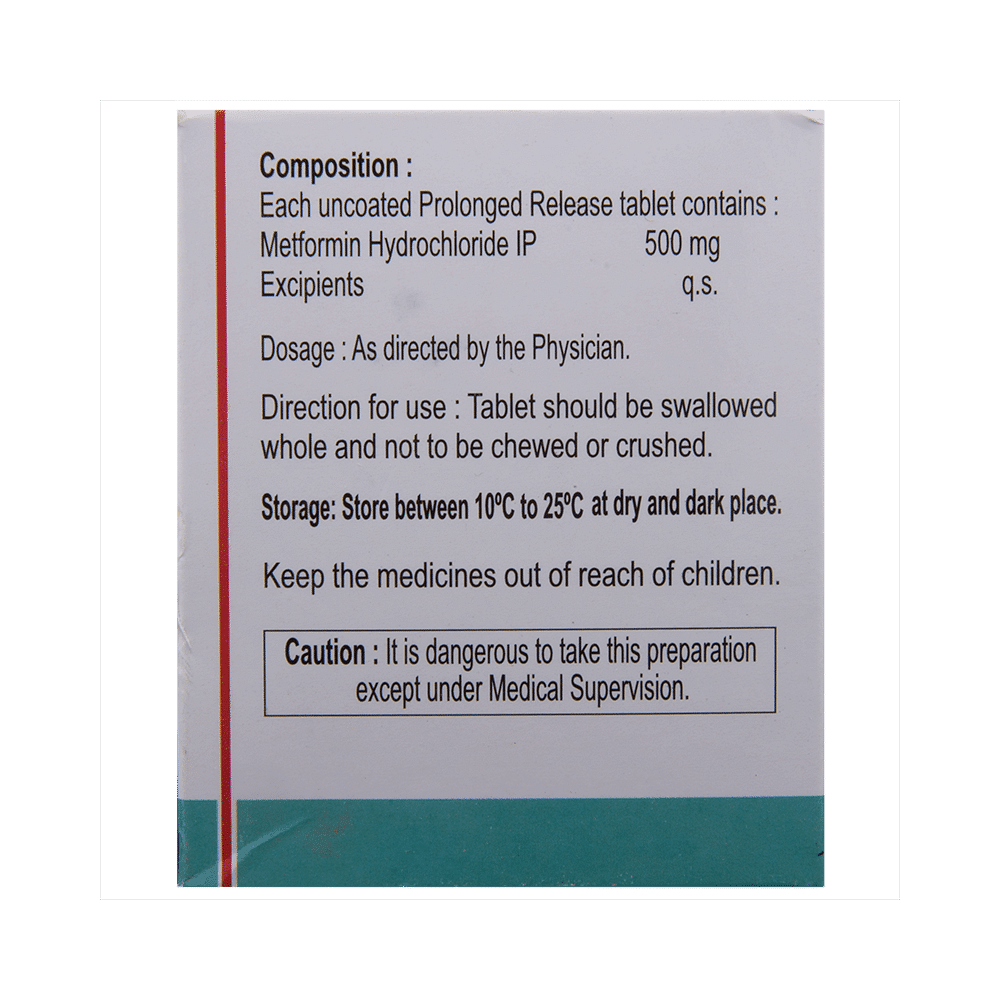
Metafort 500 Tablet
Manufacturer
Eris Lifesciences Pvt Ltd
Salt Composition
Metformin (500mg)
Key Information
Short Description
Metafort 500 Tablet PR is a medicine used to treat type 2 diabetes mellitus and Polycystic ovary syndrome (PCOS) in women, helping to control blood sugar levels and prevent complications.
Dosage Form
Tablet PR
Introduction
Metafort 500 Tablet PR is an anti-diabetic medication (biguanide) used to treat type 2 diabetes mellitus and Polycystic ovary syndrome (PCOS) in women. It helps control blood sugar levels and prevent serious complications of diabetes. It is also used to treat a menstruation-related disorder known as Polycystic ovary syndrome (PCOS) in women.
Directions for Use
Use it as advised by your doctor or check the label for directions before use. Metafort 500 Tablet PR is to be taken with food.
Safety Information
Side Effects
No common side effects listed.
Alcohol Warning
It is unsafe to consume alcohol with Metafort 500 Tablet PR.
Breastfeeding Warning
Metafort 500 Tablet PR should be used with caution during breastfeeding. Breastfeeding should be held until the treatment of the mother is completed and the drug is eliminated from her body.
Pregnancy Warning
Metafort 500 Tablet PR is generally considered safe to use during pregnancy. Animal studies have shown low or no adverse effects to the developing baby; however, there are limited human studies.
Interacting Medicines
Ketotifen Amiloride Beclometasone Betamethasone
How it works
Metafort 500 Tablet PR is an anti-diabetic medication (biguanide). It works by lowering glucose production in the liver, delaying the absorption of sugar (glucose) from the intestines, and increasing the body's sensitivity to insulin.
Quick Tips
You have been prescribed Metafort 500 Tablet PR to control the blood sugar level and reduce the risk of diabetic complications such as heart attacks. Hypoglycemia (low blood sugar level) may occur when taken along with other antidiabetic medicines, alcohol or on delaying/skipping a meal. Carry a sugar source with you for immediate relief. Tell your doctor immediately if you experience any deep or rapid breathing, persistent nausea, vomiting, and stomach pain as Metafort 500 Tablet PR may cause a rare but serious condition called lactic acidosis, which is an excess of lactic acid in the blood. Prolonged use of Metafort 500 Tablet PR may lead to vitamin B12 deficiency which may lead to anemia, causing fatigue, pale skin, shortness of breath or headache. Notify your doctor if you experience any of these as you may require supplements. Your doctor will monitor your blood sugar levels and kidney functions regularly while you are taking this medication.
Related Medicines
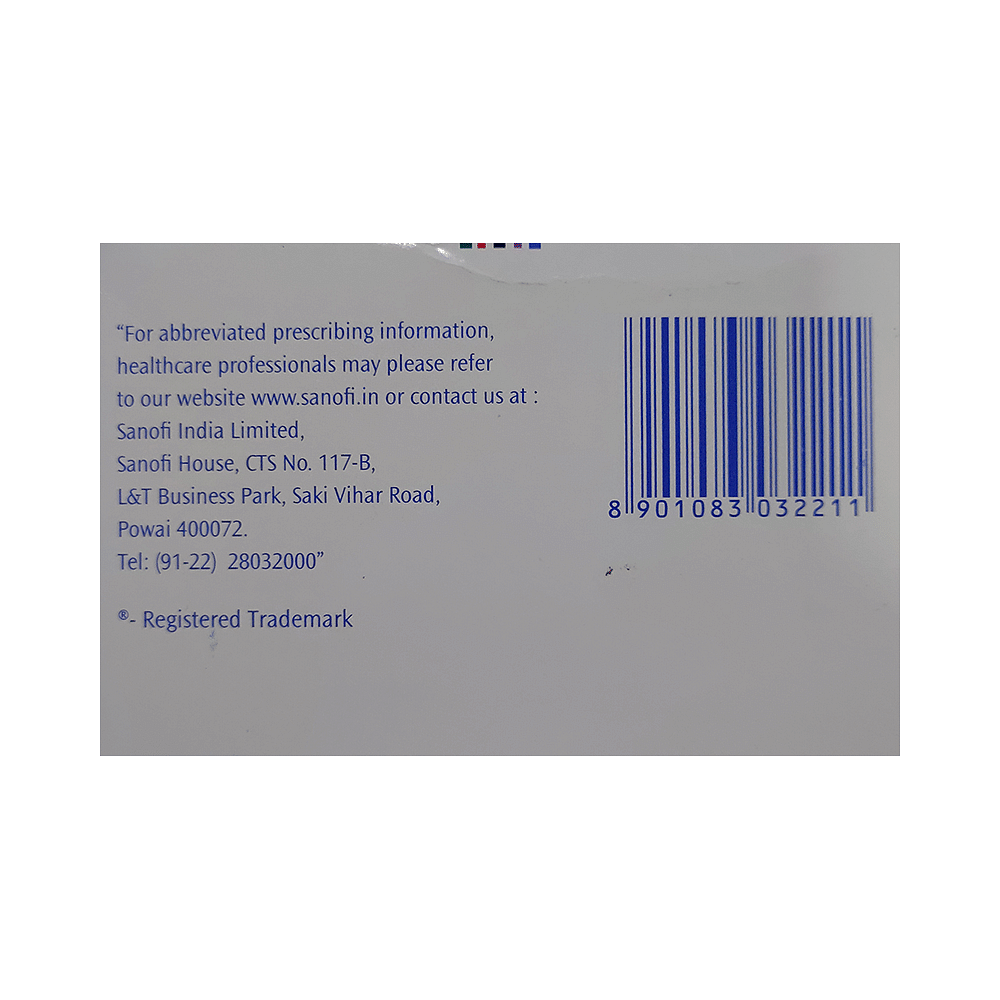
Cetapin XR 500mg Tablet

Melmet 500 SR Tablet

Exermet 500 SR Tablet
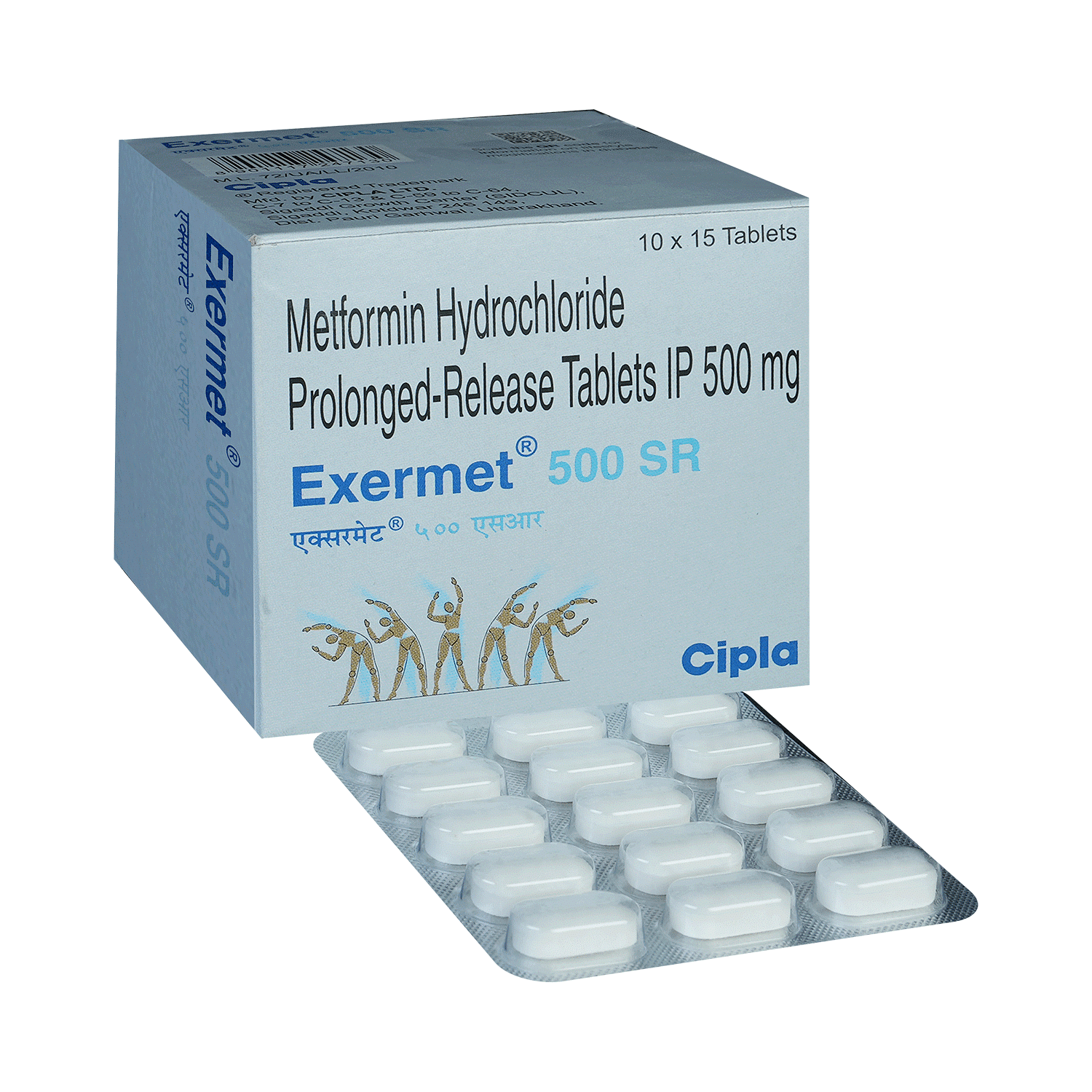
Exermet 500 Tablet
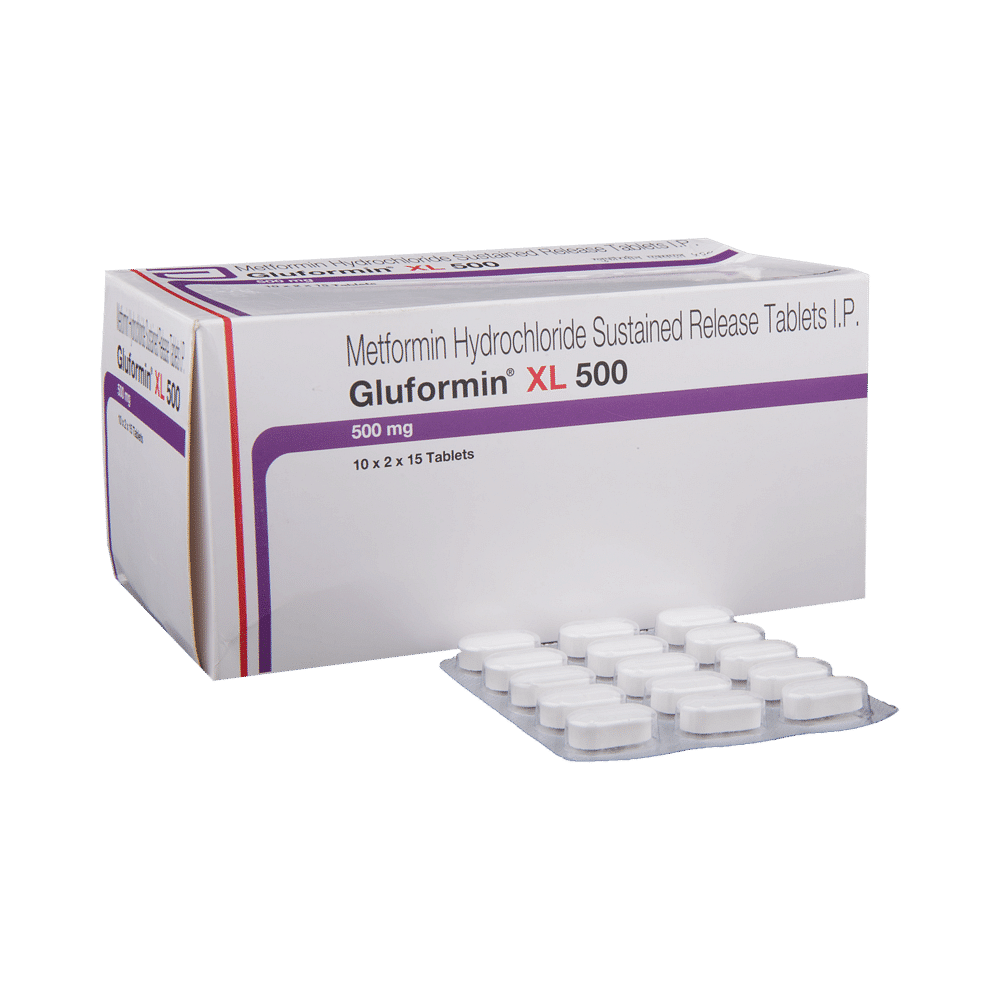
Gluformin XL 500 Tablet
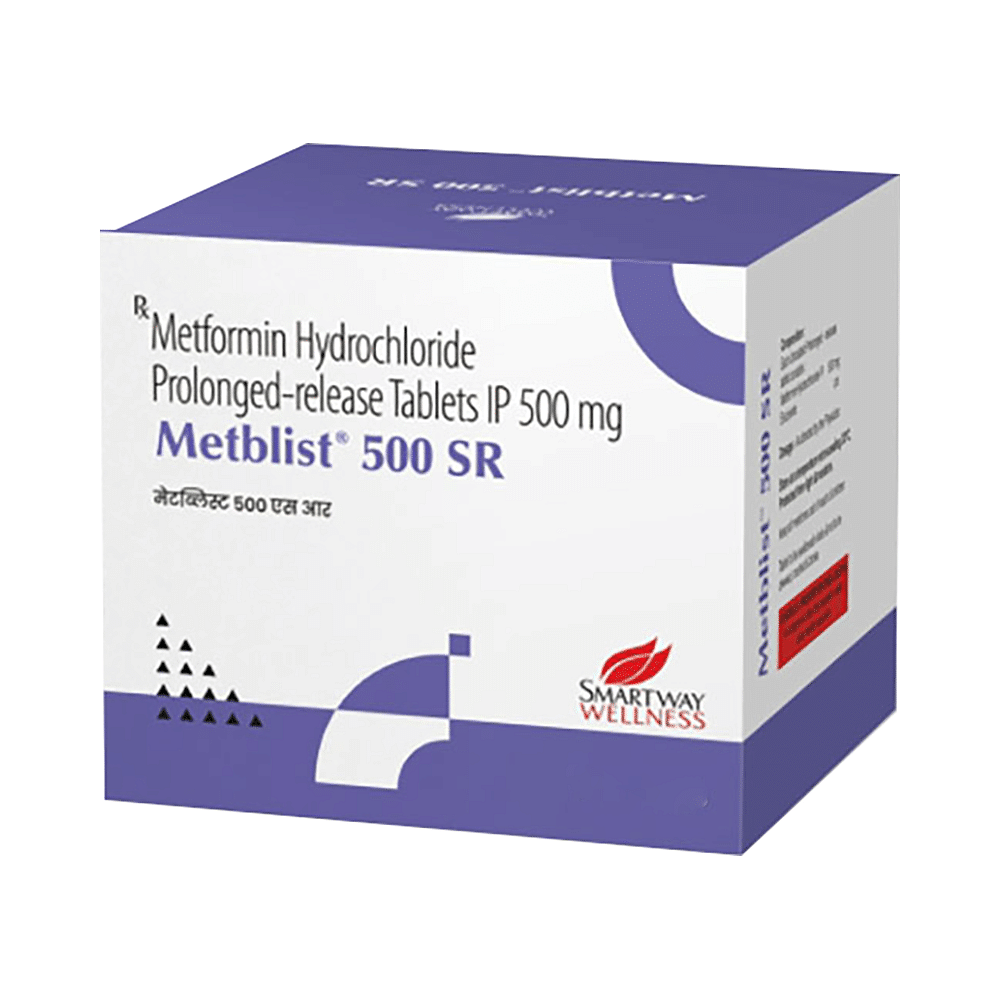
Metblist 500 SR Tablet
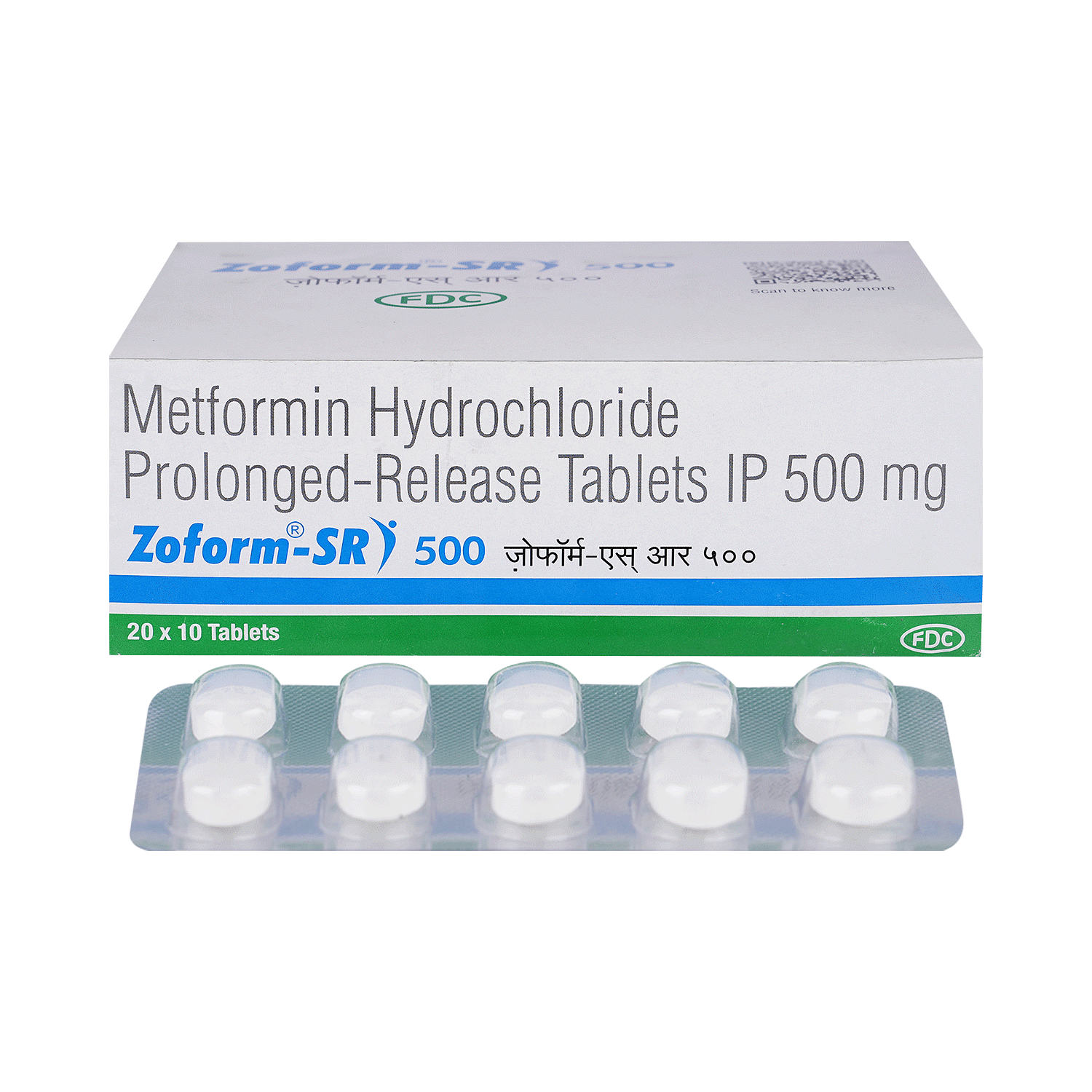
Zoform-SR 500 Tablet

Patmet 500mg Tablet PR

Formin-SR 500 Tablet

K-Met 500mg Tablet PR
Frequently asked questions
What does Metafort 500 Tablet PR do exactly?
Metafort 500 Tablet PR is a medication used to treat type 2 diabetes. It helps regulate blood sugar levels by decreasing glucose production from the liver, reducing glucose absorption from the intestine, and improving the body's response to insulin. This helps improve glucose uptake from the blood and enables the body to respond better to its natural insulin production.
Does Metafort 500 Tablet PR cause weight loss?
Yes, Metafort 500 Tablet PR has been shown to cause weight loss in individuals who are overweight or obese, as well as those at risk of developing diabetes. However, it is essential to consult a doctor before taking this medication for weight loss purposes.
What are the benefits of taking Metafort 500 Tablet PR?
Metafort 500 Tablet PR is a first-line medication for patients with high blood sugar levels. It helps control blood sugar levels by promoting the body's response to insulin, decreasing glucose production from the liver, and reducing glucose absorption from the intestines. Additionally, it rarely causes low blood sugar when taken alone and helps control weight gain.
Can Metafort 500 Tablet PR make you sleepy?
Metafort 500 Tablet PR typically does not cause sleepiness and is well-tolerated. However, it may rarely cause sleep disorders and insomnia. In rare cases, sleepiness may be a sign of a serious side effect called lactic acidosis, which occurs when the kidneys are not functioning properly. If you experience sleepiness or fatigue while taking Metafort 500 Tablet PR, consult your doctor.
How to take Metafort 500 Tablet PR?
Take Metafort 500 Tablet PR with or after a meal. Do not crush or chew the tablets and swallow them with a glass of water. Follow your doctor's prescription for the frequency and timing of doses. Taking Metafort 500 Tablet PR with meals can help reduce digestive issues such as indigestion, nausea, vomiting, diarrhea, stomach ache, and loss of appetite.


